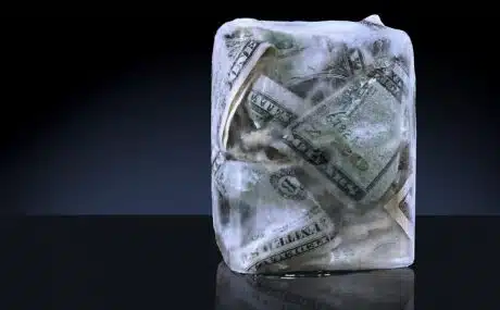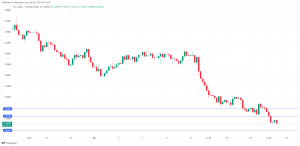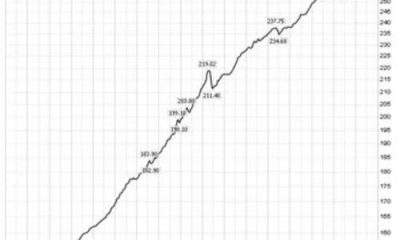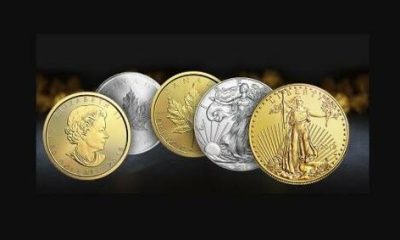Economics
EU Planning To Invest Frozen Russian Assets, Give Returns To Ukraine
EU Planning To Invest Frozen Russian Assets, Give Returns To Ukraine
Authored by Kyle Anzalone via The Libertarian Institute,
The European…

EU Planning To Invest Frozen Russian Assets, Give Returns To Ukraine
Authored by Kyle Anzalone via The Libertarian Institute,
The European Union is developing proposals on what to do with assets of the Russian central bank that were seized by member states. According to European officials, the bloc may invest the money and give the returns to Ukraine.
Anders Ahnlid, a Swedish diplomat who leads the commission exploring what to do with the Kremlin’s money, told Politico that whatever decision is made will be without precedent. “There is a consensus among [EU] member states that it’s important to examine very, very carefully, what can be done under the instructions that we’ve been given, including that what is going to be done will have to be in compliance with EU and international law,” she said. “We are in an exceptional situation and probably any solution that we will come up with will be of a nature that hasn’t been there before.”
The diplomats believe the bloc will be able to legally invest the funds because Russia’s invasion of Ukraine is an “exceptional and gross violation” of international and humanitarian law.
However, the commission admits it will have to change sanctions regulations to carry out the plan. The current statutes say once funds are unfrozen, then the target will get access to their capital as well as any returns that accrued during the sanctions period.
The bloc hopes other Western nations will join in on the scheme. The EU said taking steps in coordination with the Group of 7 (G7) was vital to not spooking investors. The commission estimates that EU and G7 countries have frozen about $300 billion in Russian central bank assets. It believes if the money is invested, it can earn about a 2.6% return.
The EU is not sure how it would handle losses. “Losses can never be excluded,” and so the question of “who bears any residual risk in case [of] such losses … will require a clear legal answer,” the commission admitted. Adding, losses have “political and financial implications.”
The commission was created last month at the direction of Sweden. “The mandate is to contribute to mapping which funds have been frozen in the European Union … and secondly how to legally proceed to access those funds,” Swedish Prime Minister Ulf Kristersson said.
The Swedish Prime Minister stated that Russian citizens must bear the cost of the war in Ukraine. Kristersson said that it’s “Russian taxpayers, not all other taxpayers, who must bear the cost of the necessary reconstruction work.”
Tyler Durden
Thu, 03/30/2023 – 06:30
central bank
libertarian

Argentina Is One of the Most Regulated Countries in the World
In the coming days and weeks, we can expect further, far‐reaching reform proposals that will go through the Argentine congress.
Crypto, Crude, & Crap Stocks Rally As Yield Curve Steepens, Rate-Cut Hopes Soar
Crypto, Crude, & Crap Stocks Rally As Yield Curve Steepens, Rate-Cut Hopes Soar
A weird week of macro data – strong jobless claims but…
Fed Pivot: A Blend of Confidence and Folly
Fed Pivot: Charting a New Course in Economic Strategy Dec 22, 2023 Introduction In the dynamic world of economics, the Federal Reserve, the central bank…




















